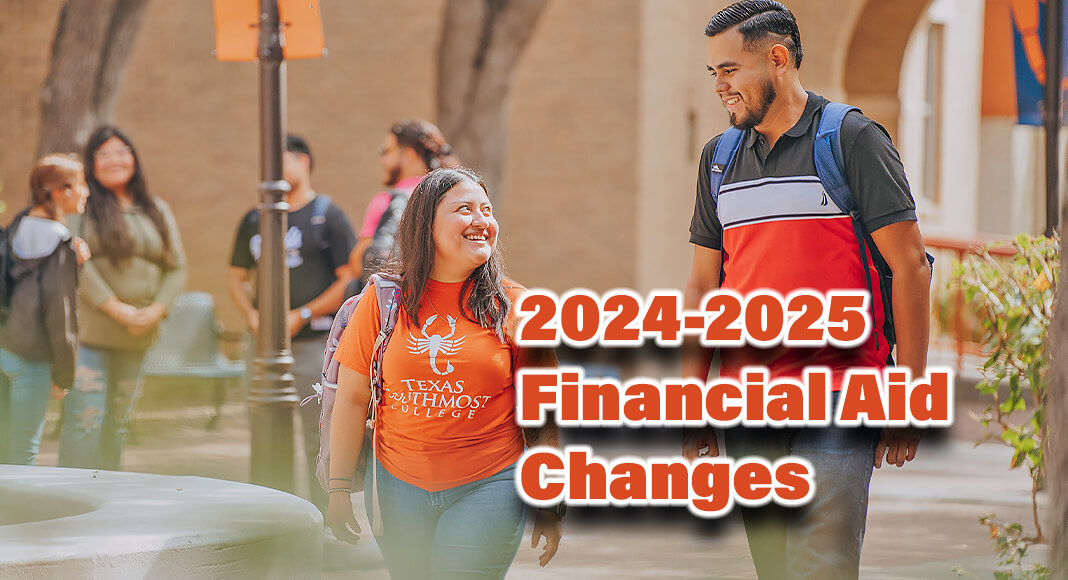
Texas Border Business
Applying and reapplying for Free Application for Federal Student Aid (FAFSA) has traditionally been a process that only some students have approached with enthusiasm, as the complexity of the forms often resulted in applicants frequently having to pause as they searched for specific pieces of requested information. This process has changed and gotten better and faster, allowing more students to qualify and get larger financial aid packages.
“The 2024-2025 FAFSA application is a more user-friendly application, and we’re hoping that it’s going to be less of a burden on students on the verification side,” said Lupita Castillo-Medellin, Director of Financial Aid at Texas Southmost College. “With more students’ information already being verified in the system, there will be less documentation that they will be required to submit to our office.”
Castillo-Medellin is optimistic that the changes will positively impact students at Texas Southmost College with the new FAFSA simplification process, including the creation of an FSA ID for parents/spouses who do not have a Social Security Number.
“A positive impact on our population at Texas Southmost College is that parents who don’t have a Social Security Number will be able to create an FSA ID, which will allow them to provide an electronic signature on behalf of their children who are applying for financial aid,” said Castillo.
Prior to this change, students applying for FAFSA whose parents did not have an FSA ID had to provide signed documents, which often delayed the application process. Submitting an early FAFSA application will make a difference in the amount of aid received because some grants are based on first come, first served.
Changes regarding student eligibility are also being implemented on the Department of Education’s side. One of the most significant changes is that of the funding formula, as eligibility for applicants will now be determined by a Student Aid Index (SAI), which replaces the previously longstanding Expected Family Contribution (EFC) metric.
The SAI metric is an eligibility index number used by a college’s or career school’s financial aid office to determine how much federal student aid the student would receive if the student attended the school. Using the SAI metric can provide a larger package of financial assistance and qualify more students for the Pell Grant because eligibility for financial aid is based on the student’s income, not the household, as previously done with the EFC metric.
“With the change in the funding formula and the Pell Grant amount having increased for the 2024-2025 school year, many more students will qualify for financial aid and have a smoother enrollment process at TSC,” said Castillo. “This change could allow approximately 610,000 new students to be approved for Pell Grant funds nationwide.”
Another change to the Pell Grant will also create more opportunities for students who wish to continue their studies during the summer semesters.
“In the past, students had to be enrolled for at least six credit hours of summer classes to qualify for the Year Round Pell, which would cover aid for their classes during that period declared Castillo, “but that will no longer be a requirement, and students will now be able to receive funds from the Year Round Pell even if they are enrolled for fewer than six credit hours for summer courses beginning Summer 2025.”
As a result of these combined changes to the FAFSA application process, formula funding, and broadened scope of eligibility, Castillo is optimistic that it will result in an overall increase in student enrollment numbers across the board, especially at Texas Southmost College.
“We encourage students to submit their FAFSA applications as soon as possible and not wait until the last minute. Our priority deadline is March 15, 2024,” said Castillo.
For more information or any questions, please contact the Texas Southmost College Office of Financial Aid in the Oliveira Student Services Center @ (956) 295 – 3620 or financialaid@tsc.edu.
About Texas Southmost College
Originally established in 1926, Texas Southmost College currently offers the first two years toward a bachelor’s degree, along with career and technical education leading to certificates and associate degrees, college preparatory studies to prepare students for college-level work, workforce training, and continuing education. TSC offers 50 programs of study leading to an associate degree or certificate.













